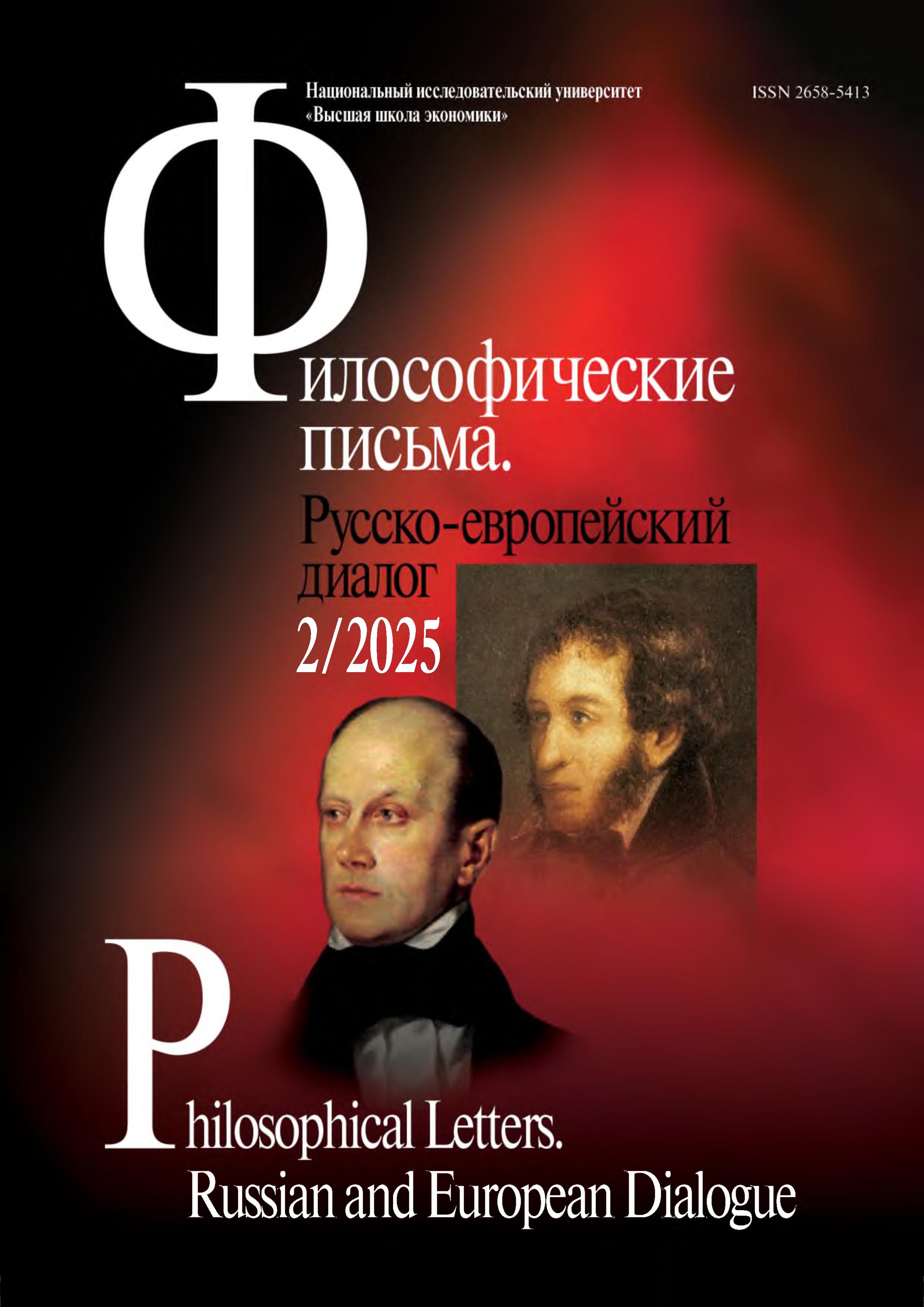Ivan Kireevsky and the Paths of Post-Secular Philosophy
Abstract
The article delves into an analysis of the philosophical perspectives of Ivan Kireevsky within the framework of a pivotal domain in the study of the history of Russian philosophy. Specifically, it explores the juxtaposition of Russian philosophy with the historical trajectory of secularization and contemporary debates on post-secular philosophy. This approach is made feasible by the author’s departure from a historiosophical comprehension of post-secularity towards a structural one. Here, post-secularity is not viewed as a contemporary epoch but rather as a distinct mode of religiosity vis-à-vis secularization observable throughout history. The study reveals that Kireevsky’s philosophical tenets are signifi cantly shaped as a response to secularization and its critique. Notably, Kireevsky both draws upon the advancements of secularization and advocates for their integration into an epistemology of integral knowledge where reason is subordinate to faith in existential and anthropological dimension. Kireevsky’s critique is not aimed at the secular modes of thought intrinsic to philosophy and science per se, but rather at their assertions of providing final and total solutions. Furthermore, the analysis contrasts Kireevsky’s philosophy with its evolution in Alexey Khomyakov’s work. While Khomyakov endeavors to construct a universal philosophy of integrated knowledge akin to Kantian principles, Kireevsky refrains from such ambitions. Consequently, Kireevsky emerges as more aligned with contemporary epistemological approaches than Khomyakov. Moreover, Kireevsky avoids delving into an epistemology of integrality in the direction to allunity metaphysics, criticized by Grigory Gutner as irrelevant to the objectives of postsecular philosophy. In conclusion, the article underscores the potential promise for postsecular philosophy, aiming to continue the tradition of Russian religious thought, by revisiting the divergence between Kireevsky and Khomyakov and furthering the trajectory outlined by Kireevsky.

